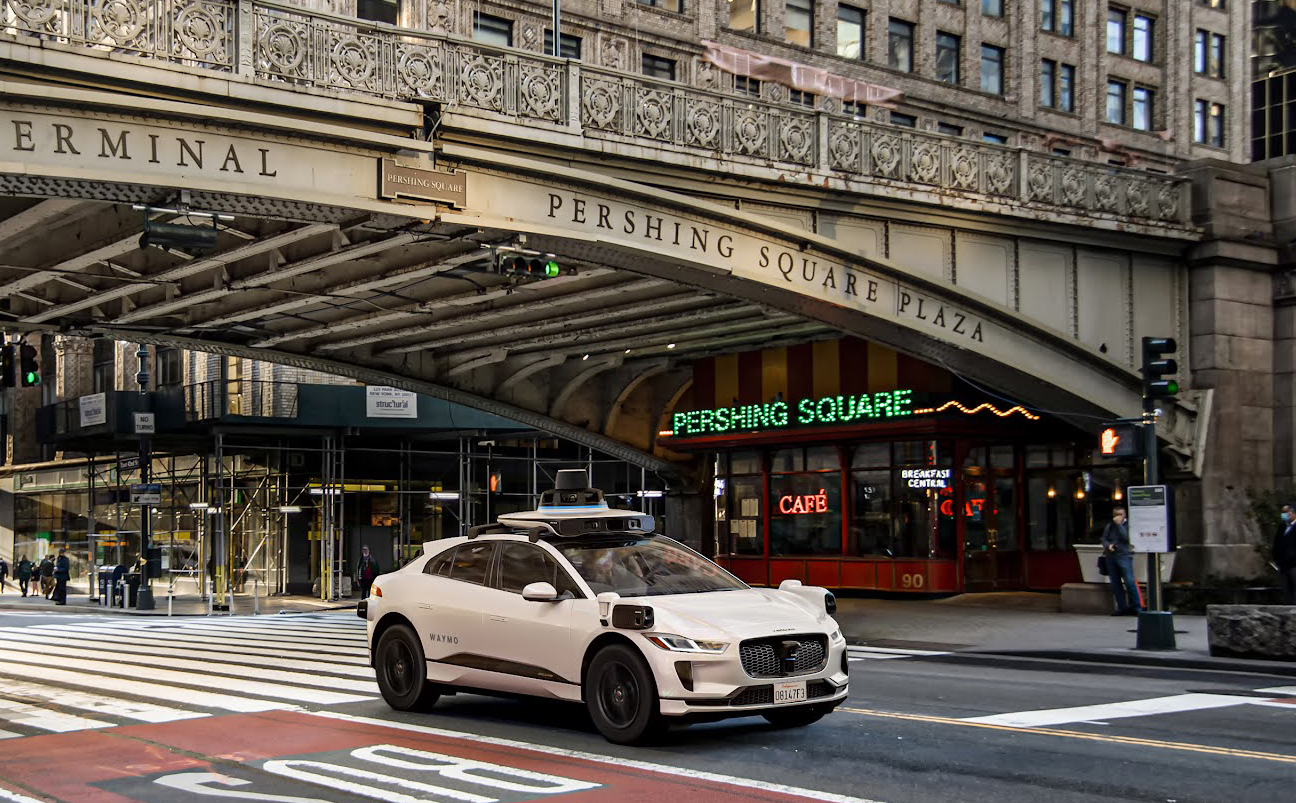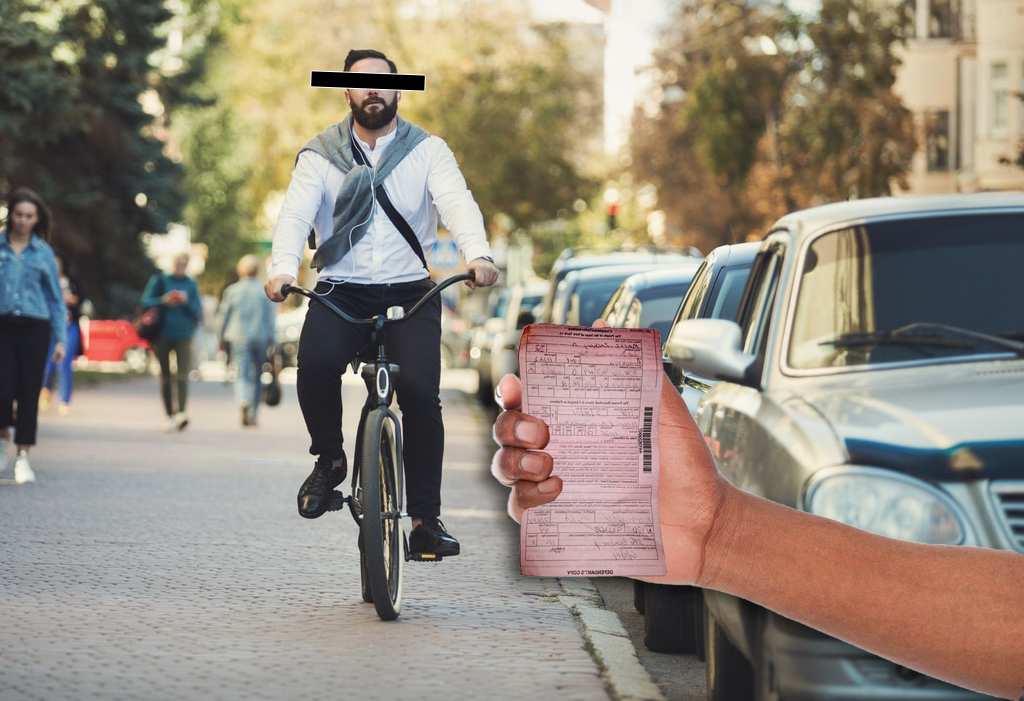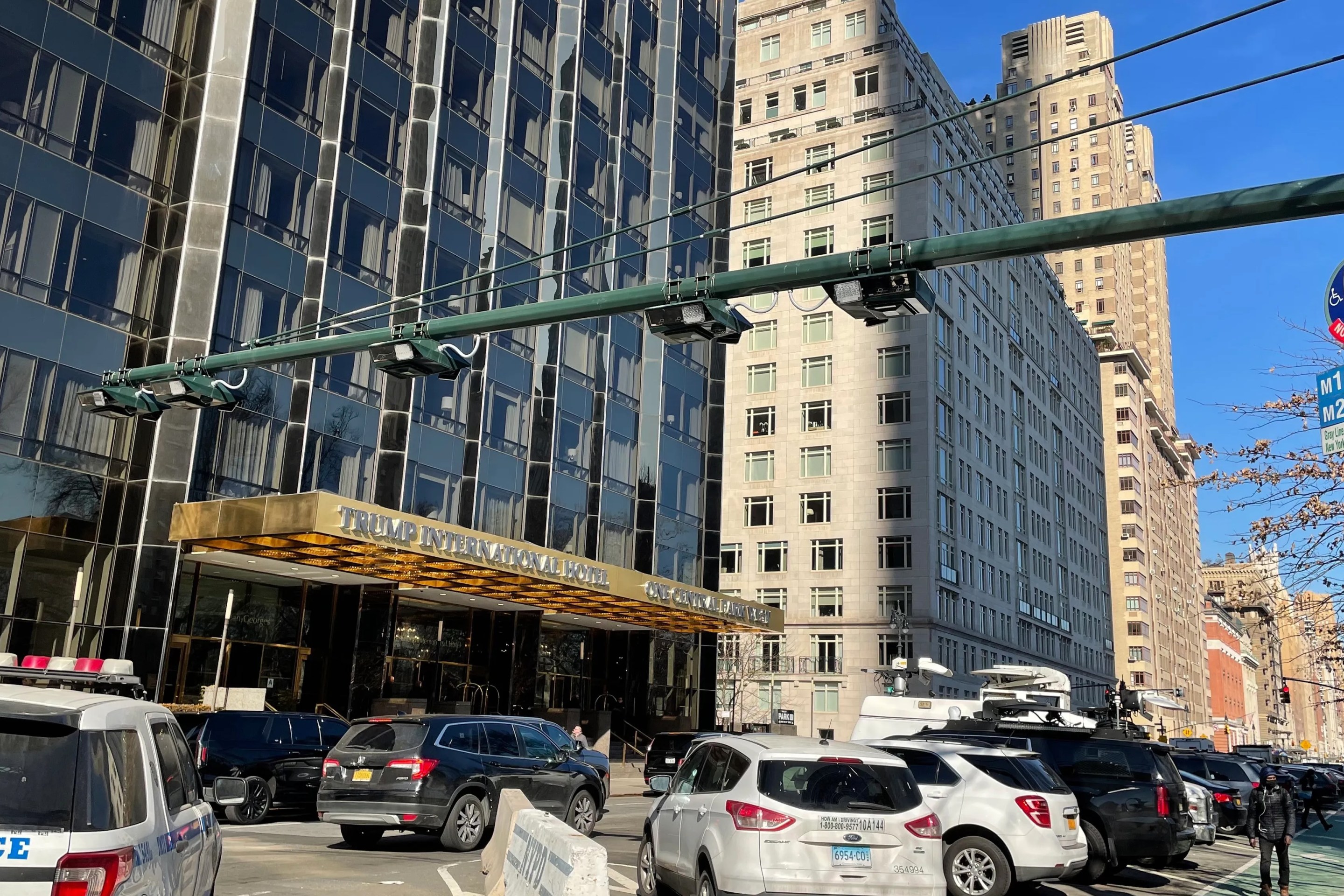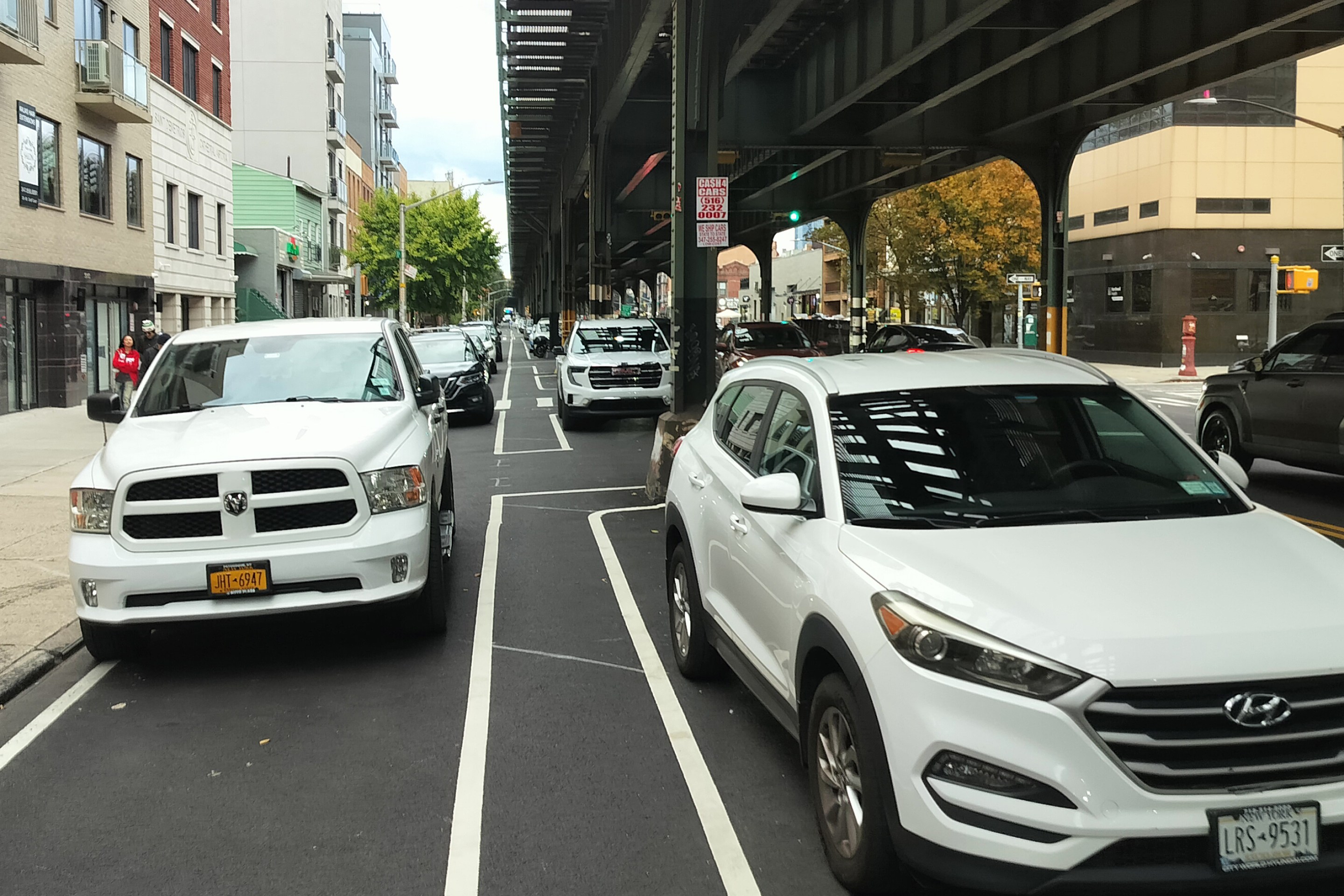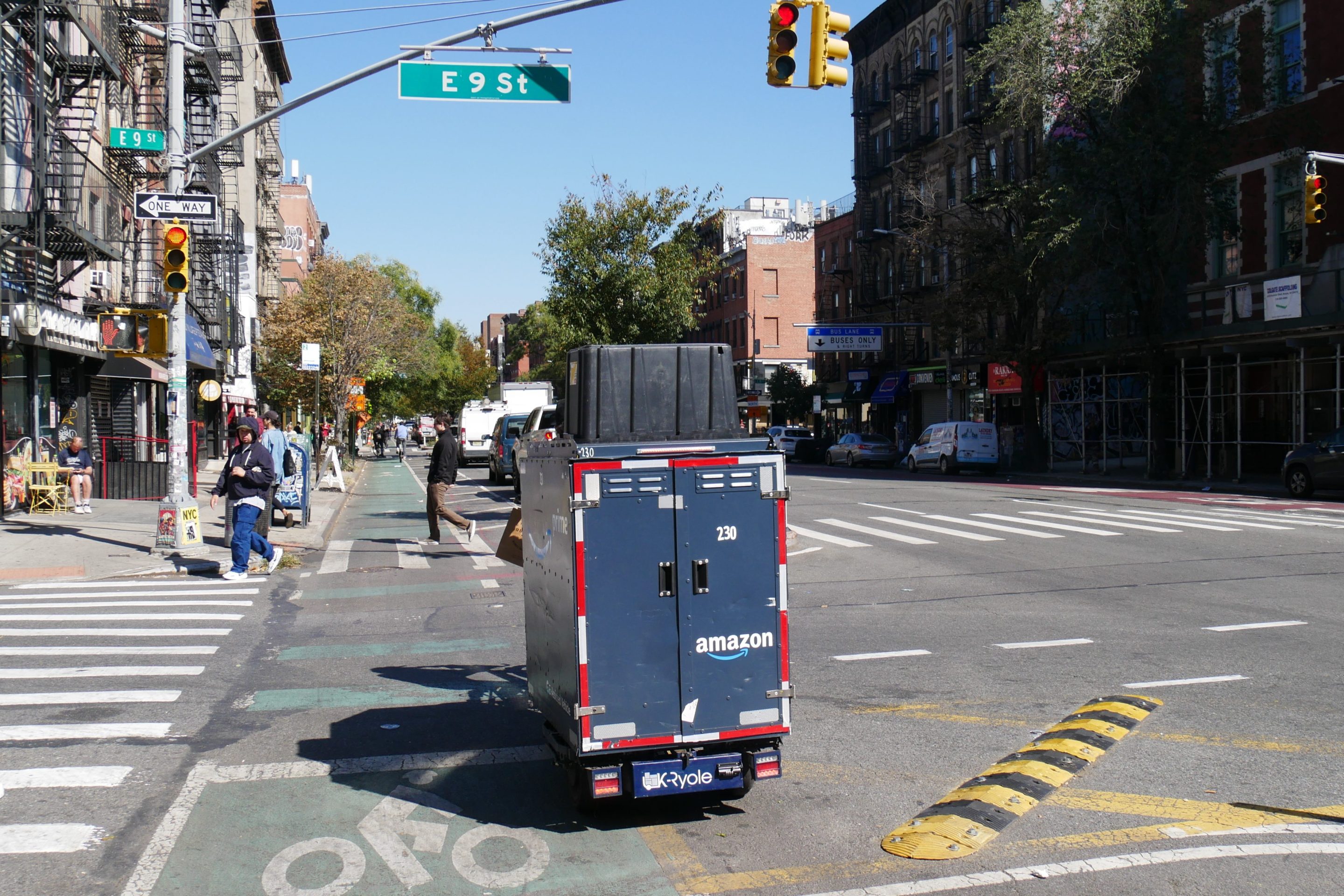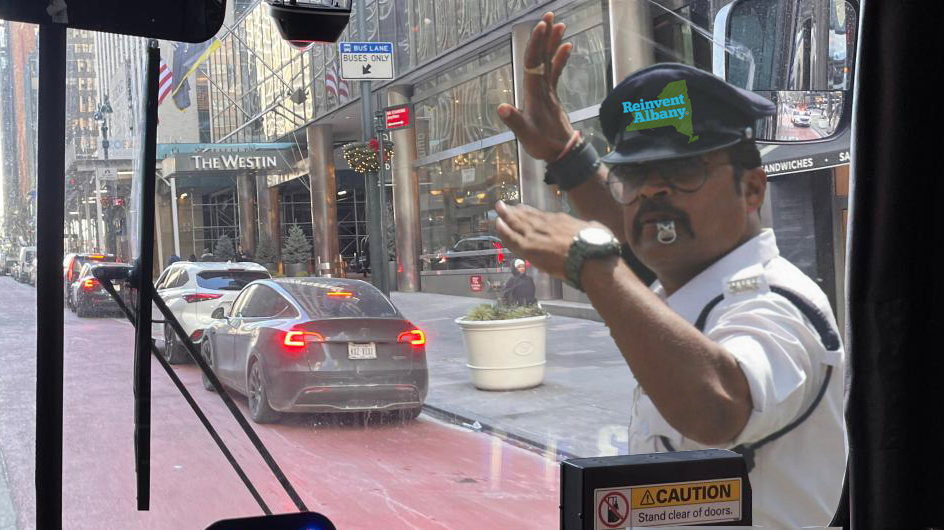What could possibly go wrong?
Waymo, the autonomous taxi company already operating in Phoenix and San Francisco, has deployed eight self-driving cars as part of a test of the vehicles in the Big Apple, City Hall announced on Friday. The driverless cars will ply the roadways in Manhattan and Downtown Brooklyn through September in a safety test.
The vehicles drive themselves around the city, but each will have a “trained AV-specialist" behind the wheel at all times — and the cars won’t be picking up any passengers just yet.
But still, Mayor Adams took a victory lap, framing the test as proof of his forward thinking.
“We’re a tech-friendly administration and we’re always looking for innovative ways to safely move our city forward,” Hizzoner said in a press release issued on Friday. “We know this testing is only the first step in moving our city further into the 21st century. As we continue to implement responsible innovation, we will always prioritize street safety.”
Waymo has approvals from both the city Department of Transportation and the state Department of Motor Vehicles for the testing, but this is only a test: actually operating autonomous taxis is against city rules. And operating any kind of autonomous vehicle without a driver is against New York State law.
Waymo has been lobbying Gov. Hochul and Albany legislators to lift the limitations on self-driving cars. Assembly Member Michaelle Solages (D- Long Island) introduced a bill in January that would eliminate the requirement of a driver in the car. A similar bill in the State Senate, Introduced by Jeremy Cooney (D- Rochester), has advanced to the Transportation Committee.
There's more to come on both bills next year.
Modern times
Autonomous ride-share services are nothing new, even in the five boroughs. Waymo cars first appeared on city streets back in 2021 when the company announced it would begin the "mapping" process in Lower Manhattan. That same year, a similar company Mobileye deployed autonomous vehicles with drivers, thanks to a permit from the state. After that, the city introduced new permit rules that paved the way for what Waymo is doing now.
If you ask some transportation experts, the Big Apple is lagging behind and needs to start thinking hard about how to best control this seemingly inevitable technology and the ways it will shape the city.
“Frankly, if New York doesn't start with this testing phase, we are going to fall far behind other global cities and other cities across the U.S.,” said Sarah Kaufman, the director of NYU’s Rudin Center For Transportation.
A Kaufman-penned report in 2021 hyped the potential of self-driving cars for increasing safety, but pointed out the consequences to be considered, such as the danger of prioritizing cars over the much-more-efficient, safe, and environmentally friendly public transit.
“We don't want any new service to poach riders from public transportation,” said Kaufman. “Subways and buses remain the most efficient means of moving large numbers of people, as we do here in New York. So [self- driving rideshare] should complement public transit rather than replace it.”
Of the last two mayors, only Mayor Adams is excited about the prospect of driverless cars in New York City, the pedestrian capital of the United States.
"If there’s one place on Earth that was NOT meant for self-driving cars, it’s NYC. This is a really bad idea," former Mayor Bill de Blasio posted on X:
If there’s one place on Earth that was NOT meant for self-driving cars, it’s NYC. This is a really bad idea. https://t.co/9U8e7014qQ
— Bill de Blasio (@BilldeBlasio) August 22, 2025
But the current mayor won't likely be persuaded by his predecessor. In fact, Eric Adams has long been interested in using new automated tech (and even being paid with it). He has used drones to spot sharks that might not even constitute a risk and tell subway surfers to kindly get off the roof of a moving train.
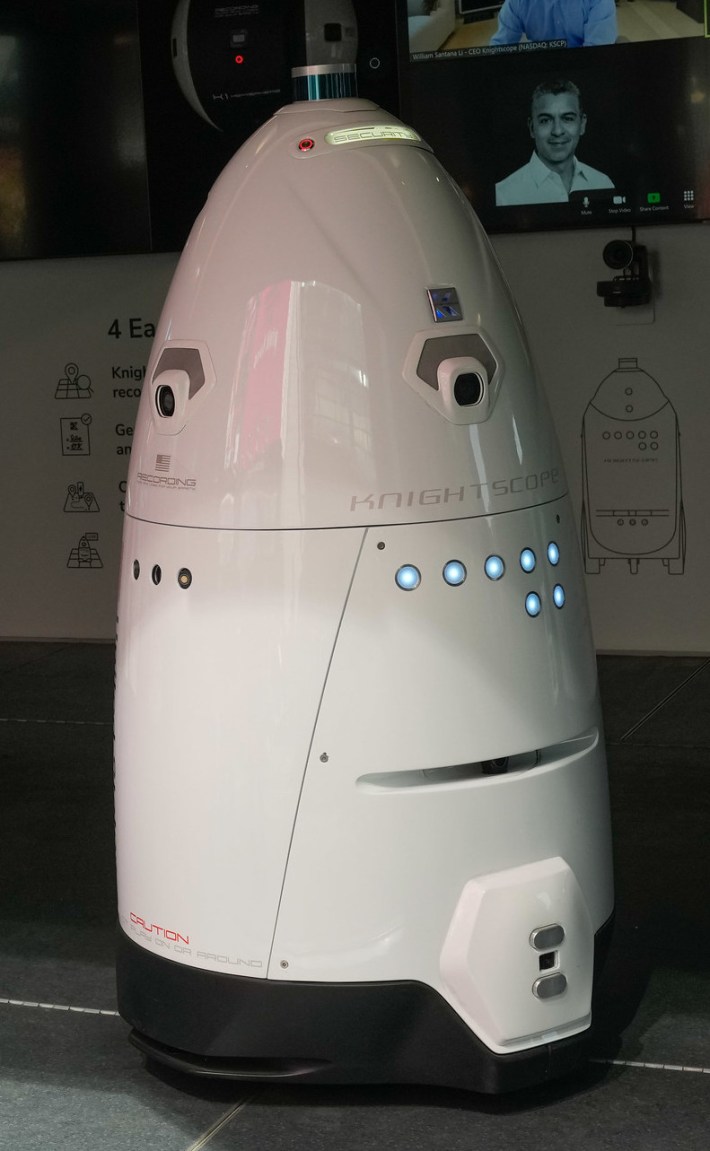
And let’s not forget the “Knightscope K-5,” a robot cop which was meant to monitor safety in the subway system.
Workers of the world, unite
It is said that you can't stop progress, but it always comes with consequences, in this case for the 178,917 men and woman who are registered with the TLC to drive yellow cabs or work for Uber or Lyft. One need not be a Luddite to worry that Waymo and other autonomous ride-share companies will make these jobs disappear. This is already happening in cities where Waymo is operating at full-scale.
When Waymo launched in San Francisco in 2023, Uber and Lyft were dominating, with 66 and 34 percent of the market, respectively, according to YipitData. But at the end of 2024, Waymo was at 22 percent of the market with Uber down to 55.
In Atlanta, Uber is partnering with Waymo to offer self-driving rides. And customers are already declining rides from human drivers in hopes of matching with an autonomous one, according to a recent Business Insider investigation.
The Independent Driver's Guild, a driver-led advocacy group, is against Waymo's expansion into New York, with a petition to "stop driverless cars from taking over NYC streets."
"Companies like Waymo are already operating at a loss to lure people away from public transit, just as Uber did when it first launched," the petition reads. "This is a direct threat to our transit system and the union jobs that keep it running. If driverless vehicles are allowed to flood our streets, we risk weakening our subways and buses — just to benefit Big Tech."
The potential
But there's one problem with humans: they make mistakes. And they get drunk. (Like we said, one problem.)
Some see driverless cars for their potential to rid the roads of human-error and recklessness that can be the root of some crashes.
“Autonomous vehicles hold the exciting promise of preventing deaths and injuries caused by behavioral factors, including impaired driving, if deployed responsibly and safely and in collaboration with the right community and city stakeholders," said Paige Carbone, regional executive director, Mothers Against Drunk Driving New York.
According to the city's rules for the testing process, the company must certify that their autonomous vehicles will operate more safely than human drivers in New York City. That doesn't seem hard to prove.
Through Aug. 19 of this year, 139 people, including 72 pedestrians and 12 cyclists have died in 52,694 reported traffic crashes, according to city data compiled by Crashmapper (that is more than 225 reported crashes caused by a human every single day). But since these driverless vehicles will be operated as ride-share and are not available for private ownership just yet, the company will be comparing its fleet to Taxi and Limousine-licensed drivers, who are held to a higher standard.
Still, there have been instances where cab drivers have killed innocent New Yorkers. In 2020, Ibrahim Odeh, a green taxi driver, killed Yaosen Tan in Gravesend. His car had a handful of camera-issued speeding tickets, though it's unclear how many drivers used the cab (which means the problem of recklessness could be even more widespread). And in 2019, taxi driver Lakhvinder Singh mowed down 26-year-old Sherena Hundalani on Queens Boulevard. He was caught trying to flee the scene and let go by the NYPD.
And in 2024 a cab driver suffered an apparent medical episode and drove his car onto the sidewalk in tourist-filled Herald Square hitting six pedestrians and sending three, including a child, to the hospital.
